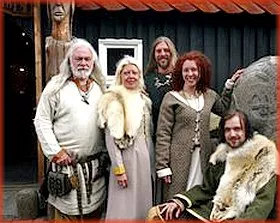1. Discover Top Icelandic Words
2. Essential Phrases for Your Visit
3. Communicating with Locals
If you’re an English speaker headed to Iceland for vacation, have little fear about communication. Most people in Iceland speak English, as it is taught in schools. However, attempting to speak Icelandic will surely be appreciated. To get you started, we’ve compiled the top nine words that are most important for your visit.
Essential Icelandic Words
- Hállo: This is the Icelandic word for “Hello.” Most English speakers can adapt this word easily. For a more informal greeting, use Hæ (pronounced “Hi”).
- Takk: In English, this Icelandic word means “thank you.” This phrase is crucial to know in Iceland since everyone loves to hear their efforts are appreciated!
- Já: This word translates to “Yes.” Knowing how to answer positively is important, and using this word can impress your Icelandic listeners.
- Nei: The opposite of Já, this word means “No.” It’s equally essential to know how to say no when necessary.
- Hjálp! Hopefully, you won’t need this word. However, if you require assistance, “Help!” is what you need to scream out.
- Bjór: This is the Icelandic word for Beer. If you’re enjoying your vacation, you’ll likely use this word a few times. Don’t forget to say Skál! (pronounced skaoul) for “Cheers!”
- Trúnó: If you find yourself revealing your secrets over drinks, the word for this act is Trúnó. It’s a little fun to know when you’re in Iceland!
- Namm! Translated to “Yum!” in English, this word is perfect for complimenting delicious food during your travels.
- Bless: This final word means “Bye.” It’s often repeated twice when parting, making it a lovely way to conclude your conversations.
With these Icelandic words in your vocabulary, you will have a great starting point for the essentials of the language. In more rural areas, these words may be useful when locals might not speak English. Therefore, while English is widely spoken in Iceland, these words can serve as a conversation starter, allowing you to engage with the local culture respectfully.




